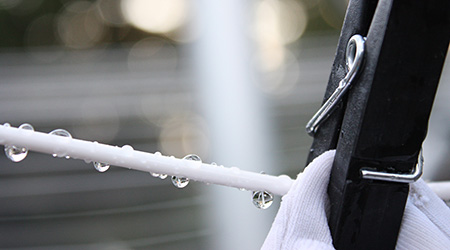20 Tips to Save More and Spend Less

From clipping coupons to making your own cleaning supplies the possibilities are endless for spending less. Ask friends and family about their favorite ways to save money or get great deals on food and other products. Don't be overwhelmed and be sure to try many different things since some may be successful for you and your family while others may not go over as well. Keep an open mind and the financial rewards can be significant.
1. Use a List
Whether it's going shopping for groceries or running errands around town, use a list to keep you focused and on track reducing extra trips and wasting valuable time.
2. Comparison Shop
Fortunately, a consumer-driven economy creates numerous competitors for your business. When buying anything, talk to three different businesses and try to get them to compete against each other.
3. Everything's Negotiable
If something is being sold then its price can be negotiated. Haggling isn't just limited to garage sales and flea markets so don't be afraid to ask for a better deal.
4. Holiday Shop Year Round
Halloween and Christmas supplies are often cheaper right after the holidays but try buying Christmas presents and smaller items all year around.
5. Don't Emotion Shop
Eating food or shopping when emotional can have devastating effects with regards to health but more importantly finances. Excessive emotion leads to erratic behavior and poor judgment so take a breath before spending money.
6. Buy Generic Brands
Store brands and generics are significantly better in quality than they were 20 years ago. More often than not, a better product can be purchased for less saving significant money.
7. Never Rent-to-Own
Never ever ever sign up for rent-to-own. Consumers inevitably pay 300% to 400% more for the same product than if they just saved their money for 4 to 6 months and bought it outright.
8. Use Online Coupons
Clipping coupons is the hot new trend for saving money with good reason. Used wisely, coupons can save hundreds of dollars on groceries and other products you would have bought otherwise.
9. Bring Food With You
Whether going on a trip or seeing a movie at a local theater, take food and a drink with you to cut down on costs. Food at entertainment venues is extremely overpriced and a waste of money.
10. Use a Clothesline
When trying to save money on electricity, use the natural resources provided every day just outside your door. Investing in a quality clothes line and air drying your clothes can significantly reduce utility bills.
11. Create a Budget
It's hard to save more and spend less if you don't know where your money is going. Create a budget outlining your income and expenses and then prioritize them according to level of importance.
12. Be Energy Efficient
Turning off lights to save electricity or running the dishwasher when it is full to save water is just the beginning of being more energy-efficient. There are hundreds of different ways to lower utility costs which are easy to do.
13. Don't Pay Interest
While most consumers can't pay cash for a house or a car everything else should be paid for in full. A little patience goes a long way so save your money and don't finance whenever possible.
14. Get Things For Free
Many consumers will use Craigslist.org and Freecycle.org to list used furniture and other products being given away for free. Companies will also offer promotional items to develop brand awareness.
15. Grow Your Own Food
Starting your own home garden to grow fruits and vegetables can significantly cut food expenses. Not only is it better for your health but it is also more rewarding to grow your own food for you and your family.
16. D.I.Y. if Possible
Do-it-yourself individuals can save hundreds if not thousands of dollars by tackling home and auto projects on their own. If you're okay getting dirty and like to learn something new, try going this route to save money.
17. Embrace To Go Boxes
Many restaurants often provide excessively large portions for their patrons. Eat an amount appropriate for you and then take the rest home. Getting one or two extra meals from eating out can save hundreds of dollars a year in food cost.
18. Keep Up Maintenance
An ounce of prevention is worth a pound of cure especially when it comes auto maintenance. Keep fluid levels topped off and tires properly inflated to minimize wear and tear and reduce costs.
19. Make Your Own Cleaning Supplies
Baking soda and vinegar are considered miracle products by many people who make their own cleaning supplies. Not only are the products more natural but they often cost significantly less than name brand cleaners.
20. Wait Before Buying "Wants"
Impulsive buying behavior is usually wasteful because it means consumers buy things they don't really need and may not use over the long run. Take a breather and check the item out a few times before putting down your hard-earned money.







